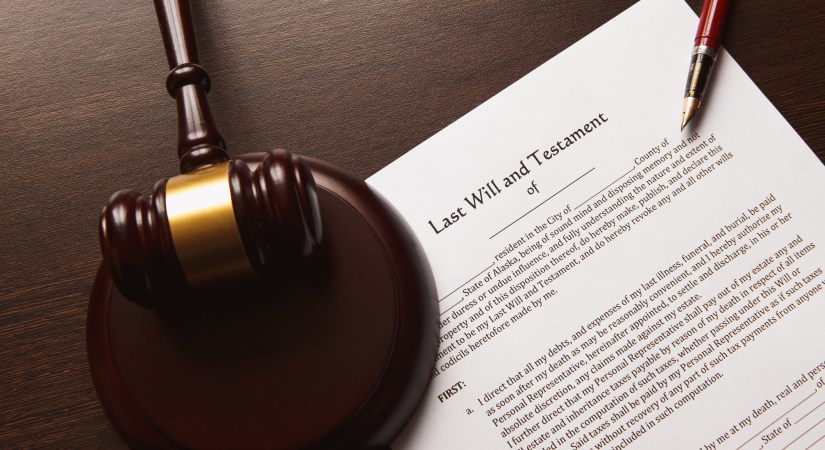Wills and Estate Planning – On a Lot of People’s Minds Today
Due to recent events regarding Coronavirus or Covid-19, I’m receiving an increase in inquiries into one area of my practice, Wills and Estate Planning. In contrast, 81 percent of people 72 years of age or older have estate planning documents; at least 6 out of 10 U.S. adults do not.
As we now see clearly, life can change and end at a moment’s notice. Life is full of “What If’s.” What if you have a car accident, or there’s a natural disaster, or you have a sudden illness brought on by an unexpected virus, or some other life-changing event.
For various reasons, many people avoid doing a Will. Some believe they positioned themselves to avoid probate without a Will. Others think they do not have enough assets, so why bother creating a Will. Still others, a Will has not been a priority to this point, and they just procrastinated.
Everyone should have a Will and other estate planning documents. If something happens to you, who will look out for your health care when you cannot? Who will manage your financial affairs when you cannot? If you were to die, who will take care of your minor children? Who will look out for their inheritance until they reach the age of majority? Who will inherit your assets if you don’t have any children? These are not pleasant questions, but life happens when you least expect it to happen. You should arrange your affairs for your end of life at any age, and certainly long before you reach the age of 72.
What does a Will do for you?
A Will is a legal document that communicates a person’s final wishes on possessions and dependents after you’ve passed. Do you have specific people in mind you would like to leave individual gifts? You need a Will. Do you think there could be disputes or confusion following your death regarding the distribution of your estate? You need a Will. Do you have children or pets that you want to name a guardian for after you pass away? You need a Will. Do you have no living relatives, and you don’t want your property going to the state? If you pass away without a Will, you die intestate. Your assets could then be distributed to your heirs by a court-appointed administrator following state law instead of your wishes. You need a Will.
What can a Durable Power of Attorney do for you?
A Durable Power of Attorney is a legal document that gives someone, whom you trust, in advance, the authority to make decisions on your behalf. A power of attorney is beneficial when you become incapable of making decisions for yourself. It’s durable because the document stays in effect if you become incapacitated and unable to handle matters on your own. The individual with your power of attorney can make bank transactions for you, pay your bills, attend to tax matters, and fill out insurance and benefits paperwork. They can also pay your everyday expenses, invest your money, file your taxes, and manage your retirement accounts. It would help if you had a Durable Power of Attorney before you become incapacitated. Before you have that car accident, that stroke, that heart attack, or contract the early onset of Alzheimer’s.
What can a Designation of Health Care Surrogate do you?
A designation of the Health Care Surrogate acts as a durable power of attorney or health care. According to the limits, you outline when you are unable to do so. According to the limits you outline, a health care surrogate has the authority to make medical treatment decisions for you. Appointing a surrogate prevents conflicts and confusion over your care. The designation itself requires that before your surrogate steps in to make your health care decisions, you must be unable to make health care decisions for yourself. You cannot assume that your physician has the authority to make health care decisions for you. And (unless the patient is a minor), family members do not have the legal right to make decisions for you. What if you failed to designate a health care surrogate? Whether you become incapacitated by illness or an accident, a Florida judge will select a court-appointed guardian, who may not act in your own best interests. It is easy to avoid this result by completing a Designation of Health Care Surrogate.
What can a Living Will do for you?
What if something terrible unexpectedly happens to you and you wind up on life support? Would you prefer doctors do everything they could to keep you alive, even if the outlook is hopeless? Or would you permit them to let you go? A Living Will is often called an advance directive or directive to physicians. Through a Living Will, when you cannot, you designate someone you want, making your inevitable death decisions. A Living Will allows you to express your end of life decisions and effectively spares your family the anguish of making the decisions without your input. A Living Will ensures your doctors understand your wishes and that they will treat you accordingly.
And what can the Law Office of M. Eric Barksdale do for you?
I may not be able to put an end to the Covid-19 epidemic, but I can prepare your Will and other estate planning documents. Now is an excellent time to discuss estate planning, to let your loved ones know what you’re thinking about, and what your life wishes are. If you are one of the 6 out of 10 U.S. adults who do not have any estate planning documents, please call me for a free consultation at 813-308-9045. Stay safe, stay healthy, stay home, for now, and practice social distancing. We are here for you and, as always, Press on Regardless!




